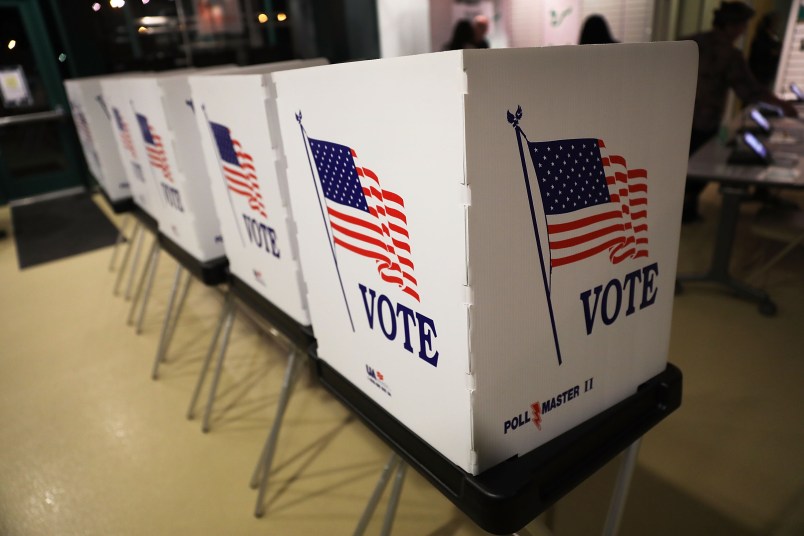BISMARCK, N.D. (AP) — A federal judge on Thursday denied a request from an American Indian tribe in North Dakota to block the state’s voter ID law just days before the election.
North Dakota’s law requires voters to show ID with a residential street address, which American Indians have argued is not always evident on reservations.
The Spirit Lake Sioux tribe sued the state Tuesday seeking a temporary restraining order, saying the street address requirement is unconstitutional.
U.S. District Judge Daniel Hovland wrote that the allegations gave him “great cause for concern” but that he was denying the motion because it would cause confusion so close to the election.
“The federal courts are unanimous in their judgment that it is highly important to preserve the status quo when elections are fast approaching,” Hovland wrote.
The state maintains everyone has a street address via the statewide 911 system, but the lawsuit filed by the Native American Rights Fund, the Campaign Legal Center and two law firms argues the system is “incomplete, contradictory and prone to error on reservations.”
“We are disappointed by the outcome,” said Matthew Campbell, an attorney for the Native American Rights Fund. “There is imminent disenfranchisement of qualified voters.”
The Turtle Mountain Band of Chippewa sued over the voter ID requirements in 2016. Hovland sided with the tribes in April, agreeing to expand the proof of identity they could use and ordering elimination of the requirement that those documents include residential street addresses. But an appellate panel overturned him, and the U.S. Supreme Court earlier this month sided with the state.
North Dakota’s four large American Indian tribes have been scrambling since then to make sure their members can vote in the election, which includes a race that could help determine control of the U.S. Senate. Republican U.S. Rep. Kevin Cramer is challenging Democratic Sen. Heidi Heitkamp, who narrowly won her seat in 2012 with the help of the American Indian vote.
Hovland earlier estimated 5,000 American Indians don’t have a qualifying voter ID. The tribes, who believe the figure is larger, said earlier this week they have handed out more than 2,000 IDs in the wake of the Supreme Court ruling.







Goddamn these fucking judges. One in Dodge City said it would also cause “confusion.” Kudos, Mitch. You’ve achieved your goal - denying people the right to vote. The fact that it’s Native Americans makes it all the sweeter, right? I fervently hope that they appeal for 2020.
“great concern” = thoughts & prayers
This judge appointed by GWBush (meaning Pres. Cheney).
Appalling.
I wonder if you could do a federal rule that any state requiring ID had to cover all the costs of providing it. Because this is ultimately a poll tax.
This judge did side with the tribes, and got slapped down by the appellate court and the supreme court for it. Same thing would happen if he granted this motion.